Learn how to get rid of fruit flies quickly and easily with these easy tips and tricks. Plus, a DIY fruit fly trap that actually looks pretty to display!
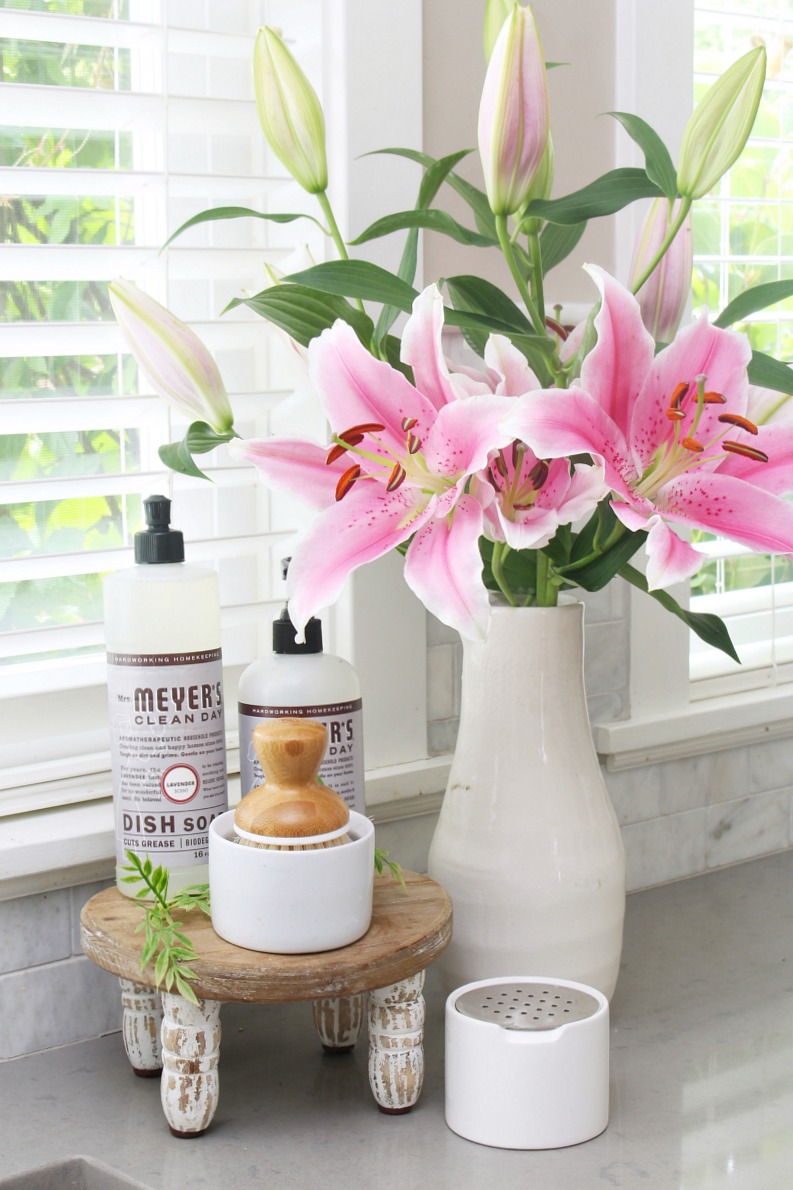
Fruit flies drive me nuts! The kitchen can be pest-free in one moment, and then suddenly filled with a mini-swarm of fruit flies just a few hours later. Thankfully, I’ve learned how to take control over these annoying little pests and want to share my tips and tricks with you!
This post contains affiliate links. This means that I may make a small commission on items that you purchase directly through the links at no cost to you. Thank-you for your support!
How to Get Rid of Fruit Flies
We all know how quickly fruit flies can take over your kitchen, so follow these steps at the first sign of fruit flies for best results.
Address the Cause
Determine where the fruit flies are coming from and address whatever needs to be cleaned. Here are the most common areas to check..
- overripe or rotting fruit or vegetables
- cleaning supplies such as damp dish cloths, mops, sponges, etc.
- sludge or fermented food deposited in the bottom of trash cans or along the seams of appliances
- sink drains
- garbage disposals
- food or wine spills on carpets that were not properly cleaned

Set up a trap
Even if you think you’ve gotten rid of the food source, fruit flies are extremely resourceful and can still stick around for a long time. So get out those fruit fly traps {or make your own!} to get rid of any remaining fruit flies and eliminate fruther breeding. My two favorite store bought traps are the Aunt Fannie’s Fly Punch and Zevo flying insect traps and sprays. It’s also very easy to make your own DIY fruit fly trap!
DIY Fruit Fly Trap
If you’re wanting to get rid of those pesky fruit flies quickly, give this easy DIY fruit fly trap a go. All you need are two main ingredients that you probably already have on hand – apple cider vinegar and dish soap. The apple cider vinegar works to attract the fruit flies, while the dish soap works to break the surface tension of the vinegar causing the fruit flies to be drawn to the bottom and drown.
Materials
- apple cider vinegar
- dish soap
- glass jar {such as a mason jar or glass pop bottle} or bowl
- plastic wrap {optional}
- for a more visually appealing version, try this fruit fly trap instead of the jar and wrap
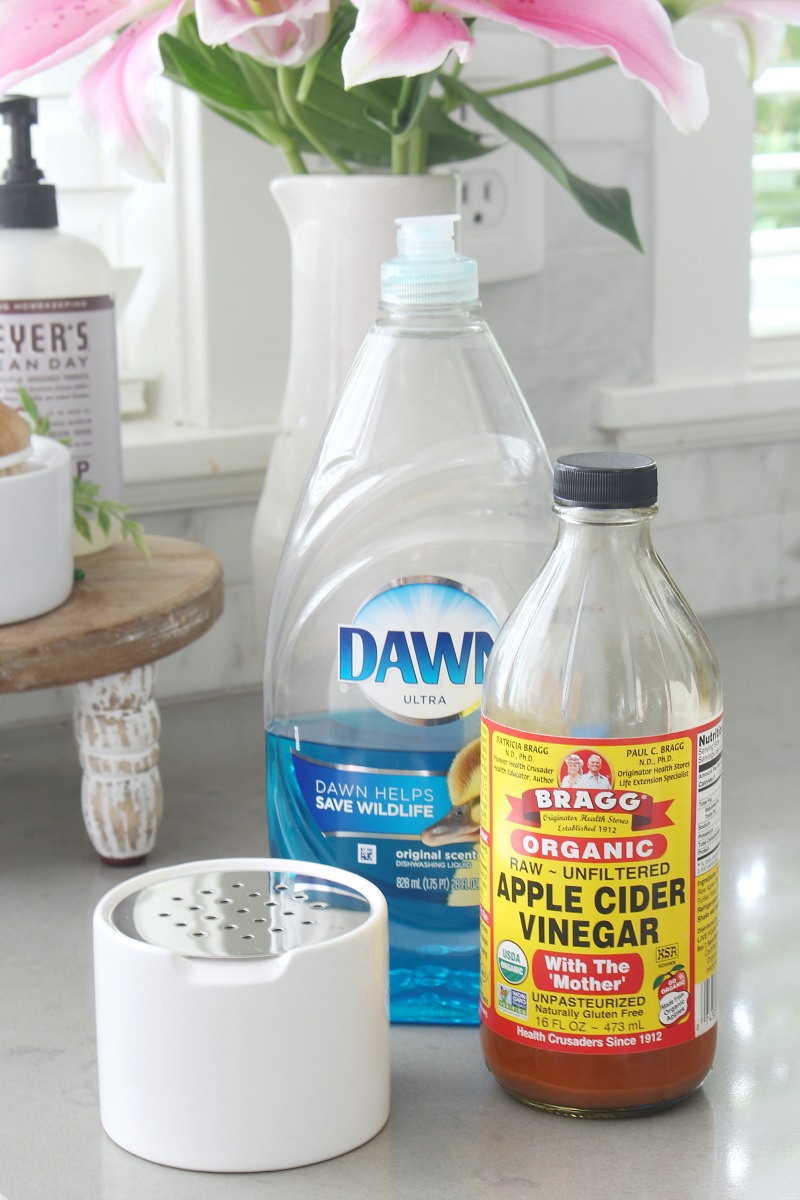
Instructions
- Pour the apple cider vinegar into your jar or bowl. It doesn’t need to be completely filled – just a couple of inches should do.
- Add a couple of drops of dish soap to the jar.
- Cover tightly with plastic wrap and punch some small holes in it with a toothpick. The plastic wrap is probably not really needed as the fruit flies don’t stand much chance of avoiding drowning, but I like the extra barrier and feel like it lessens the scent of the vinegar {but still draws in the fruit flies}.
- If you have the fruit fly trap jar, all you need to do is complete the first two steps and place the metal lid on top.
- Place your container in an area that the fruit flies tend to accumulate.
It’s definitely not necessary to buy the fruit fly trap, but it looks so much nicer on your kitchen counter than an open mason jar or bowl. Did you catch it in our summer kitchen home tour? I actually keep mine out all the time throughout the warmer months to help prevent fruit flies from getting out of hand. Even when I don’t notice any fruit flies around, there are still fruit flies that still get trapped in the jar. Better safe than sorry! 😉

Where do fruit flies come from?
Fruit flies are tricky little pests that can seem to appear out of nowhere. They’re generally attracted to the scent of ripened or rotting fruits and vegetables in your home and can find their way into your home through cracks, plumbing, open windows can be brought in from produce purchased at the store. They also enjoy alcohol and other sugary drinks, and can even feed on the residue from damp dish cloths, sponges, or trash bins. Although fruit flies tend to be most common in the kitchen, they can also appear in bathrooms, basements, or any other space that has some kind of food source.
Why are fruit flies so hard to get rid of?
Once in your home, fruit flies can be hard to control due to their quick breeding time and development. Females are able to lay about 500 eggs that can hatch within as little as 24-30 hours. They develop into adults in just two days and their lifespan is between 40-50 days. That’s a lot of fruit flies in a very short period of time!
Where do fruit flies breed?
Fruit flies typically lay their eggs directly on rotting produce but can lay eggs on even the smallest of food particles. They also breed in drains, garbage disposals, trash cans and mop buckets. Kitchen cleanliness is essential to eliminate them as fruit flies only need a very thin layer of fermenting material to thrive and lay eggs on.
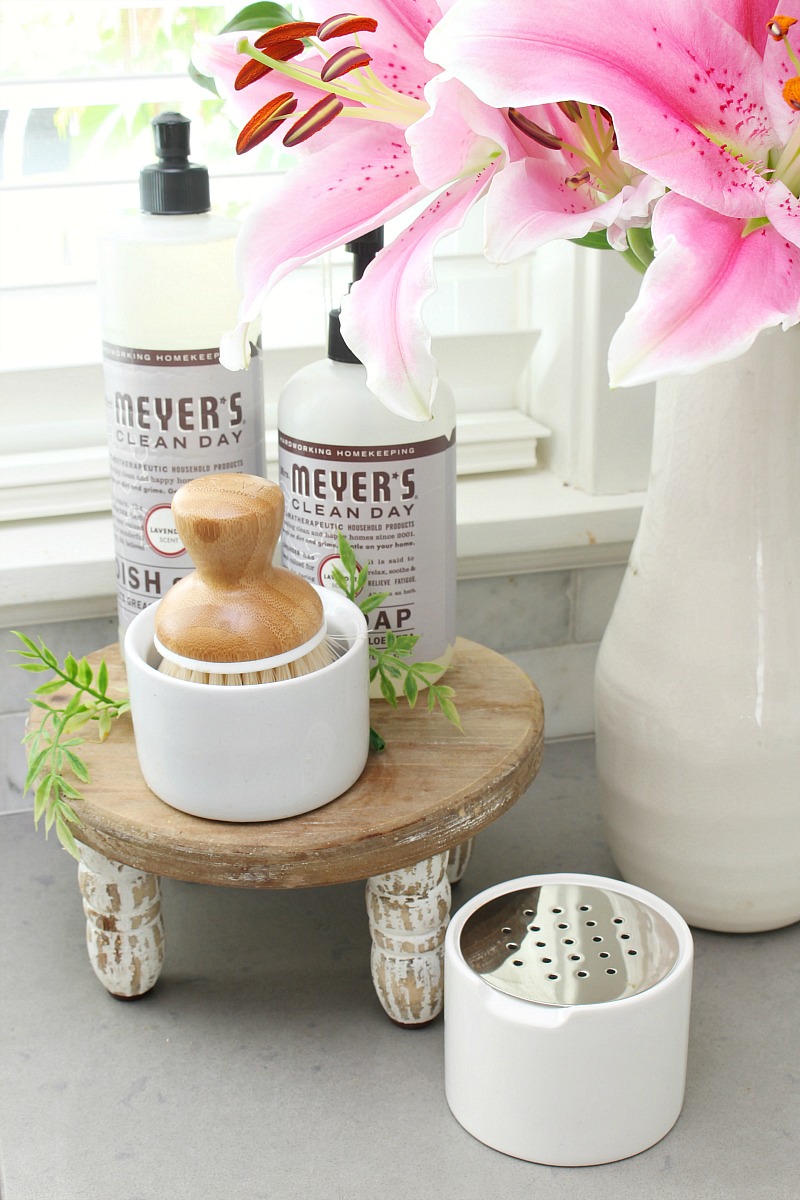
How to Prevent Fruit Flies
The easiest way to not be bothered by fruit flies, of course, is to not get them in the first place! Here are a few tips to decrease the likelihood of a fruit fly infestation…
- toss or compost any overripe or rotting fruit daily. If you know you’re not going to be able to eat it all before it gets too ripe, cut it up and freeze it for smoothies or juicing, or do some baking!
- keep fruit in the fridge when possible
- empty the trash bin regularly and wipe off any food deposits
- wash fruit bowls at least once per week
- inspect all in-coming produce for any signs of decay and rinse fruits with water
- wipe down sinks to keep dry when not in use
- rinse and clean mops, cleaning rags, and sponges after use. Sponges can be placed in the dishwasher for extra sanitizing.
- flush out sinks and drains with a cleaning fluid
- clean your garbage disposal regularly
- clean grime off of appliances and cabinets
For more general tips on how to safely get rid of bugs indoors {and keep them away!}, check out this post.
More Kitchen Cleaning Tips
For more kitchen cleaning and organization tips, check out these posts…

Free Printable Cleaning Labels
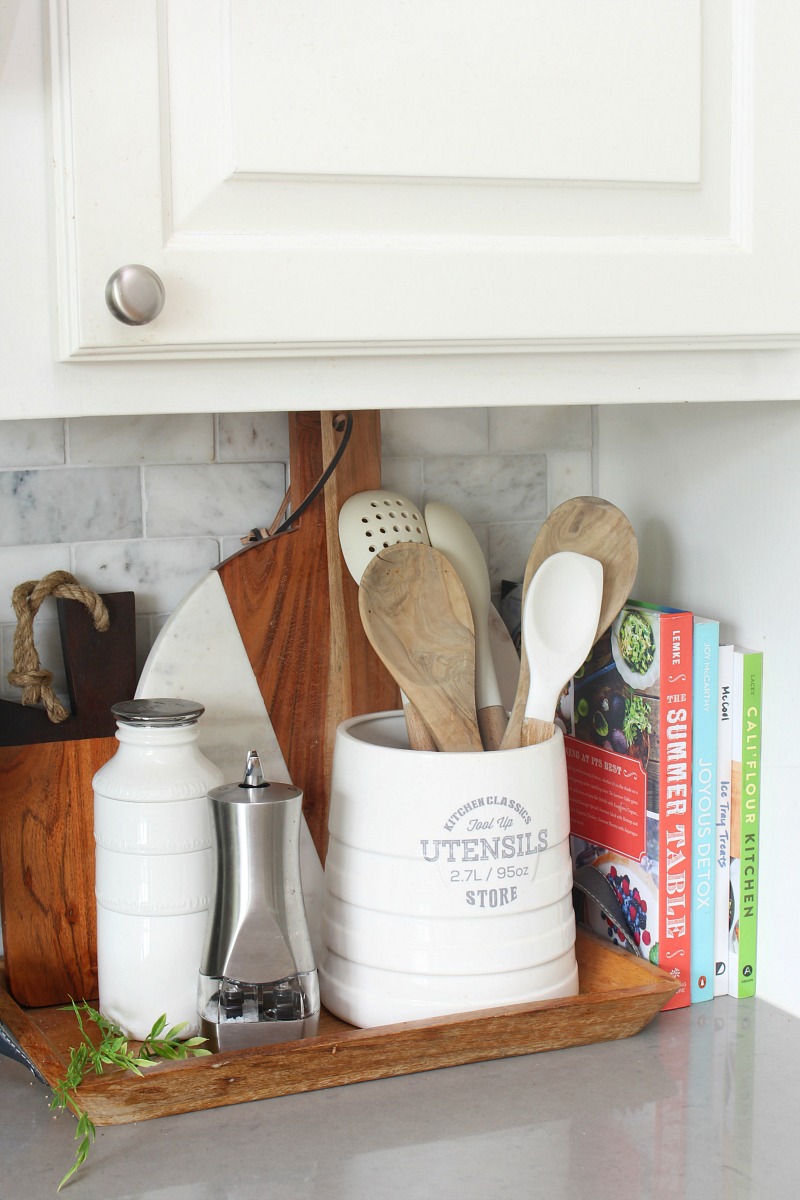
20 Items to Declutter from the Kitchen
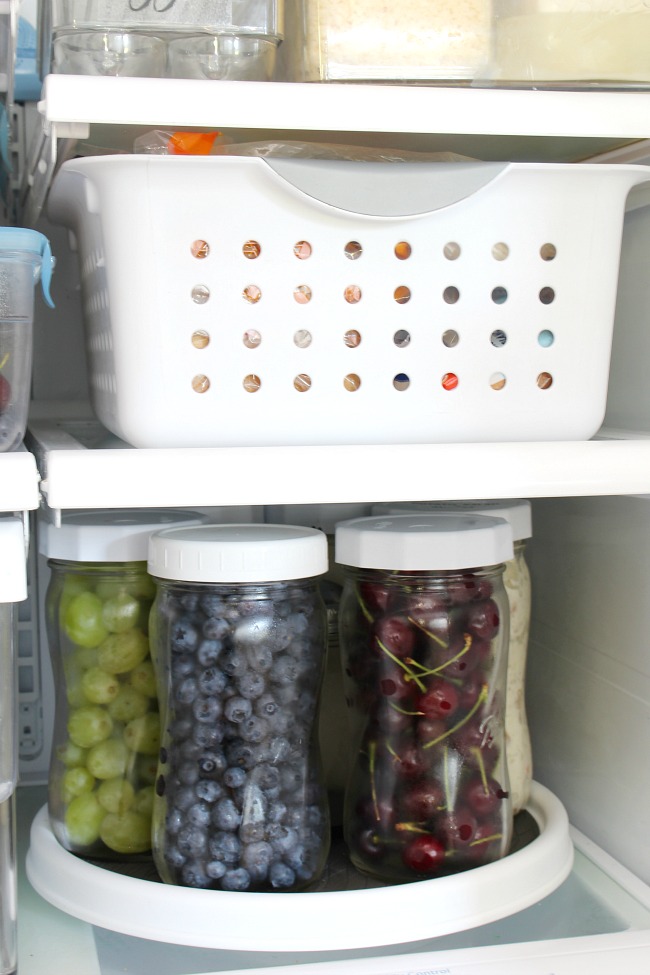
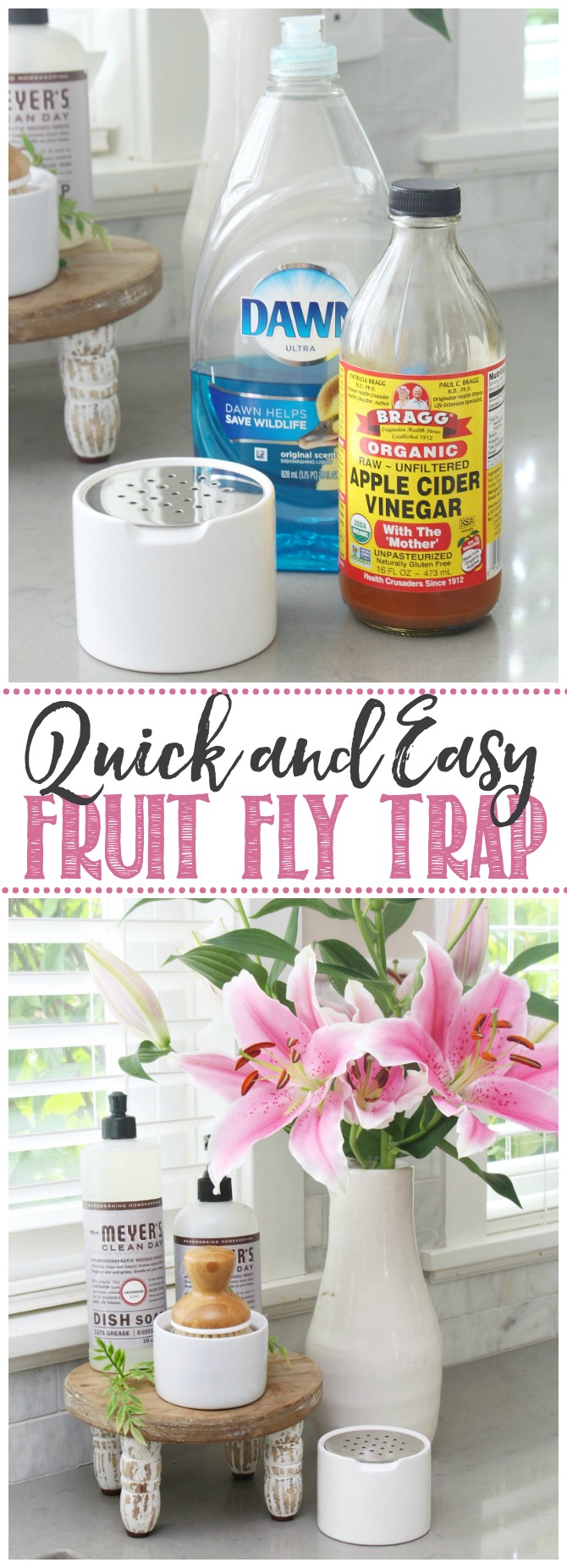
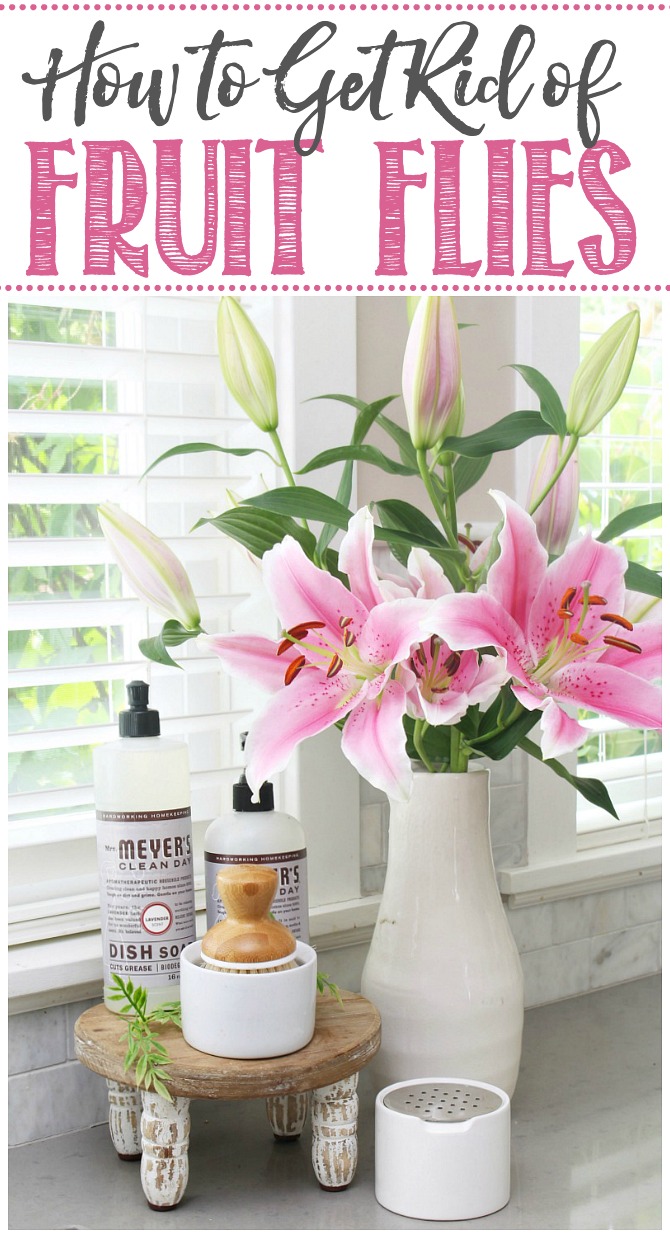
Leave a Reply